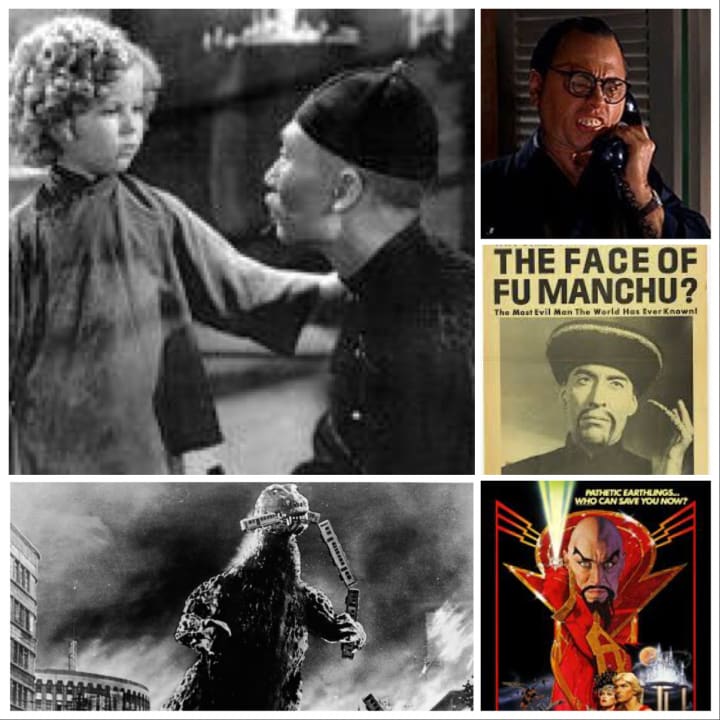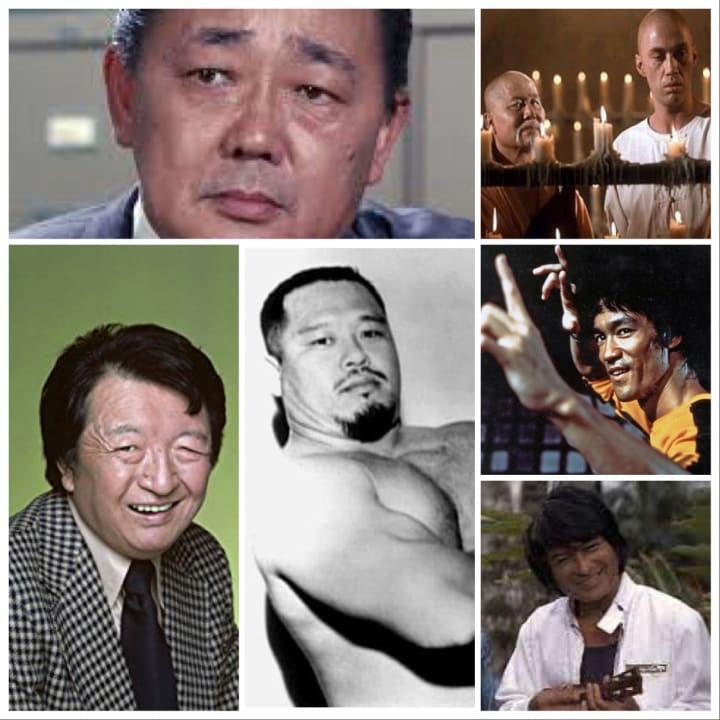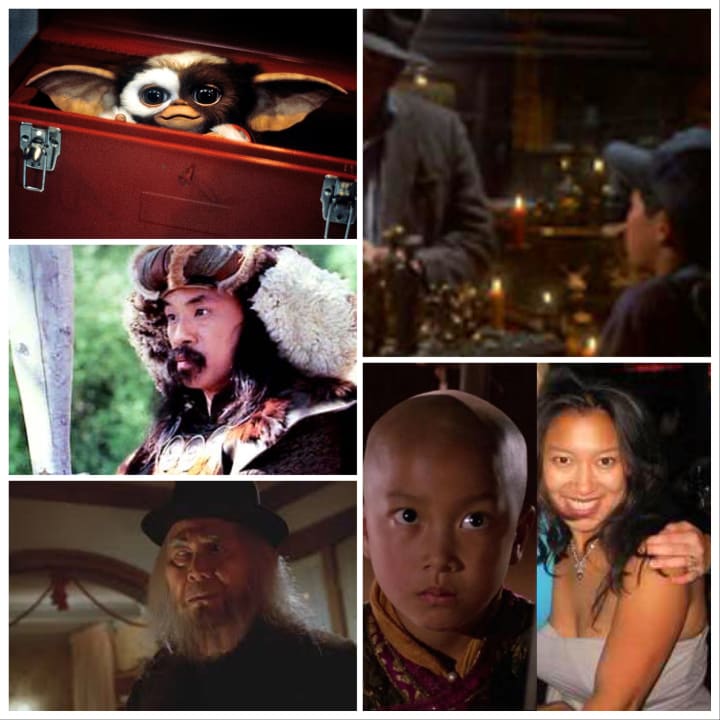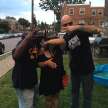My Hereditary Cultural Erosion Experience
Reflections on Growing Up in 80s America as a Korean American...

My mom was escaping a life defined by Korean society in December of 1971 when she arrived in San Francisco, CA, USA. I was born in May of 1972, an American citizen. I am 1.5 generation and I am the beginning of the process of hereditary cultural erosion for both me and my progeny. Unlike Black people who were taken in a time where there were very little public records of their hereditary culture’s history because their identities were stolen and they were conditioned through generations, I know some of my genes’ history and language, and that definitely has been at times confusing in relation to my country of origin, the US. We do share hereditary cultural erosion and all immigrants to a country of multiculturalism will be exposed to it somewhere in our ancestry even though the rate has been sped up in Blacks even with cultural appropriation. However, race and governance, like capitalism, are all man-made constructs. In the human race, we are broken up into different societies and cultures given a categorical definition by land space borders, also manmade.
In America, quality of life issues will define a sense of nationalism. With the advent of technology and globalization, we are further removed from a sense of interconnection to nature and the resulting habitat loss for the rest of living things due to our manmade landscapes creating such societal effects as pollution, advertising asphyxia and consumerism.
The belief in altruism and a common good vs. self-interest, the foundation of a morality worldview, is the structure in a belief in sharing.
I feel removed from being Korean. I am different. I am a Korean-American. But because I’m exposed to so many cultures, “race” is an issue in society and politically but not personally. Race is more common in monocultural countries because it is part of their nationalist identity.
All interactions between humans involve trade. Some kind of trade, give and take. Add national currency and other countries and this is the world. Then there is ownership, which creates borders. When there is a want to have control over others, there becomes an inequality from consumerism. In quality of life, ability for social mobility and the fair distribution of space and resources are the measures of its prideful nationalism. To have nationalism for your hereditary culture and your country of origin both is like having children. You love them both so you cannot have a favorite though you may love them in different ways.
My great great grandfather was the last tutor to the last Prince of all Korea. We have a 5,000 year history in Pyongyang which is now the capital of North Korea. If my family had not been immigrants themselves to South Korea after the Japanese occupied, I could’ve been under the rule of Kim Jong Un...
I do not have any family that I am close to. I do not have any Korean friends. The few things that do give me a stronger tie to Korea have been Korean hip hop and Korean food because it is comfort food... I have been to South Korea four times; the last time was twenty years ago...
I realize that there has become a new trend, transracialism. Declaring that you are of a certain nationality, leaving out your birthright and genes as factors. I wonder if equality allowed us to be transracial, what is the point of race? Maybe that’s the point.
The ideal evolution for mankind is to be the anthropologist and a futurist for common good altogether. We are not going to be wiped out as a major food source and have a hard time not looking at all other species as food. Our disconnection to nature and our place in it are a neurosis in itself. Emil Kraeplin, the godfather of psychiatry and pharmacology, coined the phrase “dementia praecox,” meaning “senility of the young mind,” the origins of modern Schizophrenia.” I think he was largely misunderstood because he nailed the description..."young mind,” because a mind incapable of taking care of self and not accepting of futurism towards a common good with the universe within space is not mature. I propose that egotism and narcissism, together, is itself a psychosis and has been created via societal ills. One’s outlook on one’s identity does very much sway their opinions of others and one cannot be a society without others... A multicultural environment will have its problems.
Talking about fair representation in Hollywood, I think it comes with better scripts... Hollywood has had to compete with foreign film industries, at times drawing inspiration... The 80s had writers like Dan Aykroyd, Harold Ramis, Rick Moranis (Ghostbusters), Savage Steve Holland (Better Off Dead), and Jerry Rees, Joe Ranft, Brian McEntee, and Jim Ryan (Brave Little Toaster). Timothy Harris and Herschel Weingrod wrote my favorite of all 80’ movies, Trading Places, and Neal Israel, Pat Proft, and Peter Torokvei; Jim Abrahams, David Zucker, and Jerry Zucker; and Wayne Crawford and Andrew Lane wrote (Real Genius, Airplane, and Valley Girl respectively...) my tied for second place fave 80s movies. I was about sixteen when I took my two little cousins to see Big Trouble in Little China... which was written by David Z. Weinstein and Gary Goldman and had a predominantly Asian cast set in San Francisco and matched with my history of liking Hong Kong kung fu flicks, Korean history dramas, ghost stories, and gangsters, and didn’t seem to be a big deal even though it’s kind of a big deal now. Also, The Golden Child, written by Dennis Feldman, came out in ‘86... Karate Kid 2 written by Robert Mark Kamen came out in 1984... Black Rain, written by Craig Bolotin and Warren Lewis, came out in 1989. In terms of Asian representation, but specifically Koreans in American films, I was underrepresented when growing up, but grateful that the Chinese and Japanese cultures were there at least... However, even though we are all considered Asians, Koreans have different customs, language, and culture, though some things are similar... In America, it does not seem to matter because all our cultures overlap in this melting pot immigrant society...
As a kid, I watched Shirley Temple’s 1936 Shanghai Stowawayby William M. Conselman, Nat Perrin, and Arthur Sheekman based, on the story by Samuel G. Engel; Bruce Lee movies like Enter the Dragon written by Michael Allin; Kung Fu, the TV series created by Ed Spielman, Jerry Thorpe, and Herman Miller; Goldfinger written by Richard Maibaum, Paul Dehn and uncredited Berkely Mather from a story by uncredited Johanna Harwood and Berkely Mather; and the 1961 Flower Drum Song, a Broadway musical written by Rodgers and Hammerstein II on our three stations TV when I had to get up to change the channels... I also watched the M*A*S*H franchise of film and TV series... Richard Hooker wrote MASH: A Novel About Three Army Doctors (1968), based on his experiences as a surgeon at the 8055th MASH in South Korea. He published several other novels based on that group. A total of 15 M*A*S*H novels were published between 1968 and 1977, some co-authored by William E. Butterworth (from Wikipedia.) Koreans were background to the doctors and nurses who were not Korean. I am also a product of Godzilla movies, Barney Miller, The Brady Bunch, Hawaii Five-O, and Flash Gordon (Ming the Merciless is a character who first appeared in the Flash Gordon comic strip in 1934). I was also made aware of Dr. Fu Manchu, who is a fictional villain character introduced in a series of novels by British author Sax Rohmer during the first half of the twentieth century, and the buck-toothed glasses wearing stereotype. Dr. Fu Manchu was also featured extensively in cinema, television, radio, comic strips, and comic books for over 90 years, and has become an archetype of the evil criminal genius and mad scientist, while lending the name to the Fu Manchu moustache (from Wikipedia). The Asian stand-ins were as insulting as Blackface. That is why the 80s were so great for Asian American representation.
Most of these American depictions, the ones both set and filmed in America, especially the all-Asian casts, were not bad depictions and characterizations of Asians... Asians may not be that present in the superhero realm (I watched a video where Koreans were asked questions about whether Asians should have a superhero movie after watching Black Panther) but honestly I think martial arts is almost superhuman and maybe a lot of Asians are fine with that. Jackie Chan was still making movies in Hong Kong in the 80s and they were some of his best... but he has made too many bad movies working in the US since for me. And in the 80s, there were also movies like Sixteen Candles or like Gung Ho, written by John Hughes, and Lowell Ganz and Babaloo Mandel, respectively...and of course The Goonies written by Chris Columbus (he also wrote Gremlins) from a story by executive producer Steven Spielberg in 1985, Indiana Jones and the Temple of Doom, the screenplay written by Willard Huyck and Gloria Katz from the story by George Lucas in 1984, Revenge of the Nerds written by Steve Zacharias and Jeff Buhai and Bill and Ted’s Excellent Adventure, written by Chris Matheson and Ed Solomon, for token Asians... But as you can see from the list of writers, none listed were of Asian descent...
Anyone who grew up with Egg Shen and Lo Pan and the Three Storms finished watching that movie and had a notion thereafter that Asians were supernatural though... Did you know The Golden Child is female?
I honestly think good times for good scripts come in waves.
Present day, Hollywood is not the only place to seek representation... there are other film production companies outside of Hollywood...
I just had an epiphany. I haven’t really thought about films coming out of African countries... I’ve seen some from Latins and Europeans and Russians... but aside from The Gods Must Be Crazy being shot there, I don’t recall any film from Africa... Film was just not part of Africa’s recent history? 1878 the first film was made in France... We’ve had a century and a half and what have we got to show for its invention and innovations?
What Was the First Movie Ever Made?


Hereditary Cultural Erosion and Tolerance



About the Creator
Milissa Yoon
I’m a Writer/Artist Storyteller and Social Anthropologist. I am Korean-American and live in Philly presently. I employ the Scientific Method most times, and am interested in our Natural Inter-Connections as humans in our Universe.






Comments
There are no comments for this story
Be the first to respond and start the conversation.